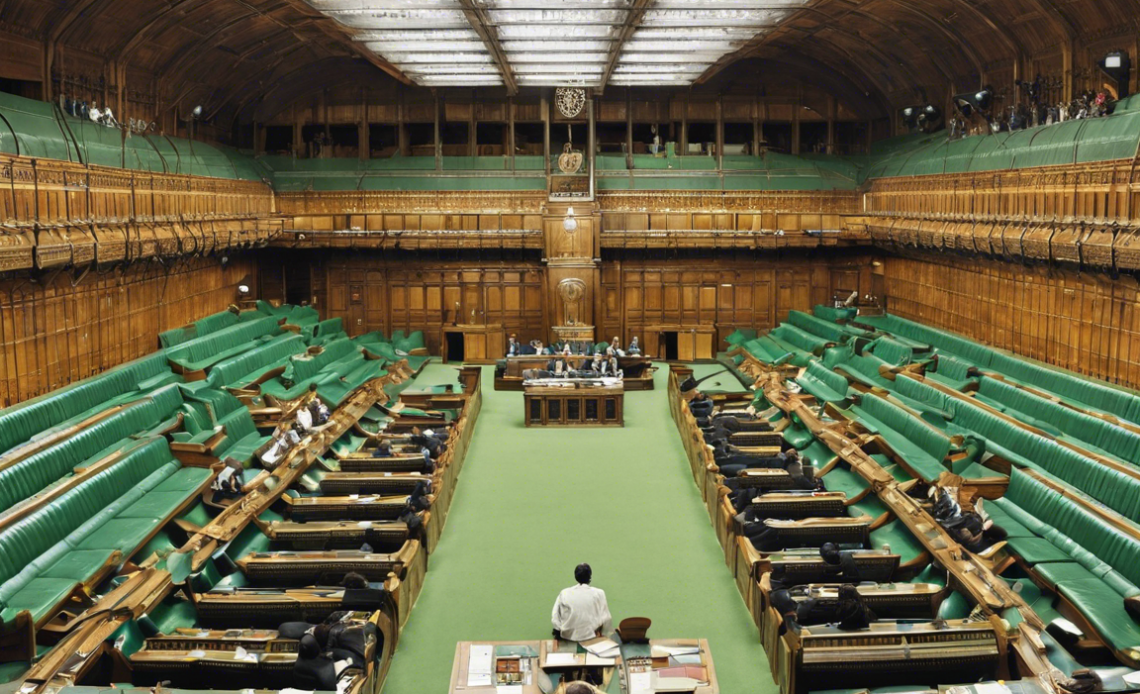
Parliament plays a crucial role in the governance and functioning of a country. It serves as the highest legislative body, representing the will of the people and formulating laws and policies that shape the nation’s direction. In this blog post, we will delve into the importance of Parliament, its roles and functions, and how it contributes to the democratic framework of a country.
Understanding Parliament
Parliament is the supreme legislative body of a country, responsible for making laws, overseeing the government’s actions, and representing the citizens. It is typically composed of two houses: the Lower House (such as the House of Commons or the House of Representatives) and the Upper House (such as the House of Lords or the Senate).
Roles of Parliament
-
Legislative Functions: One of the primary roles of Parliament is to enact laws. Members of Parliament (MPs) propose, debate, and vote on new legislation, amendments to existing laws, and budget allocations.
-
Oversight and Accountability: Parliament holds the government accountable for its actions. Through mechanisms such as question sessions, debates, and committee hearings, MPs scrutinize the government’s policies and decisions.
-
Representation: Parliament represents the diversity of the population. MPs voice the concerns and interests of their constituents, ensuring that different viewpoints are considered in the decision-making process.
-
Budget Approval: Parliament plays a vital role in approving the government’s budget. It reviews financial proposals, allocates funds for various programs, and ensures that public money is spent wisely.
Functions of Parliament
-
Lawmaking: Parliament is responsible for passing laws that govern the country. These laws cover a wide range of areas, including public health, education, taxation, and human rights.
-
Scrutiny: Parliament monitors the government’s activities to ensure they align with the interests of the public. MPs examine policies, actions, and expenditures through debates, questions, and investigations.
-
Representation: Parliament provides a platform for diverse voices to be heard. MPs represent different regions, ethnicities, and ideologies, reflecting the pluralistic nature of society.
-
Conflict Resolution: Parliament serves as a forum for resolving conflicts and disputes. Debates and negotiations help reconcile differing opinions and lead to consensus-building.
The Importance of Parliament in Governance
Upholding Democracy
Parliament is fundamental to a democratic system. It ensures that decisions are made through deliberation and consent rather than dictation. By involving elected representatives in lawmaking and oversight, Parliament upholds the principles of representation and participation.
Citizen Engagement
Parliament provides a platform for citizens to engage with the governing process. Through mechanisms such as public hearings, petitions, and consultations, people can voice their concerns and opinions, influencing policy decisions and holding officials accountable.
Checks and Balances
Parliament serves as a check on the power of the executive branch (government). By examining government actions, debating policies, and withholding approval if necessary, Parliament ensures that the government operates within the boundaries of the law and serves the public interest.
Transparency and Accountability
Through its open proceedings and public debates, Parliament promotes transparency in governance. Citizens can observe how decisions are made, understand the rationale behind laws, and evaluate the performance of their representatives.
Frequently Asked Questions (FAQs)
- What is the difference between Parliament and the government?
-
Parliament is the legislative body that makes laws, whereas the government is the executive branch that implements laws and policies.
-
How are Members of Parliament (MPs) elected?
-
MPs are typically elected through general elections in which citizens vote for their preferred candidates or political parties.
-
What is the role of the Speaker of the House?
-
The Speaker presides over parliamentary debates, maintains order, and ensures that parliamentary rules are followed.
-
Can Parliament remove a sitting government?
-
Yes, through a vote of no confidence or a defeat on a crucial legislative matter, Parliament can trigger the fall of a government.
-
What happens in a hung Parliament?
- A hung Parliament occurs when no single political party has a majority. In such cases, parties may form coalitions or seek new elections.
In conclusion, Parliament is a cornerstone of democratic governance, embodying the principles of representation, accountability, and transparency. By understanding its roles and functions, citizens can actively participate in shaping the future of their countries and holding their elected officials to high standards.

